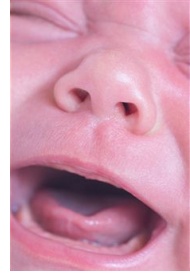 Congratulations! You have decided to breastfeed and give your baby the best possible food he/she can have. This is truly a terrific goal and you should be proud of yourself for wanting to do this.
Although breastfeeding is a wonderful experience for you and your baby, it is not one that comes without hardships. Breastfeeding at first, can be very difficult and hard to commit to. It doesn’t have to be this way though. As long as you prepare yourself ahead of time and have some good knowledge under your belt you can correct any problems before they arise.
Congratulations! You have decided to breastfeed and give your baby the best possible food he/she can have. This is truly a terrific goal and you should be proud of yourself for wanting to do this.
Although breastfeeding is a wonderful experience for you and your baby, it is not one that comes without hardships. Breastfeeding at first, can be very difficult and hard to commit to. It doesn’t have to be this way though. As long as you prepare yourself ahead of time and have some good knowledge under your belt you can correct any problems before they arise.
Tips For Breastfeeding
Tips For Easier Breastfeeding- Physically prepare your body – Breastfeeding can be rough on your nipples, causing them to crack and bleed. You can help toughen them up before the baby is born by rubbing a small amount of nipple cream on them.
- Invest in some good, supportive bras – They don’t have to be expensive, but you will want a bra with good support. You are going to be carrying around a lot of extra weight in your chest and you don’t want your back paying the price. It also helps to buy a bra that is padded to help absorb any extra leaks. Although you should use nursing pads, sometimes you will soak right through these and could have quite an embarrassing moment.
- Educate yourself ahead of time on problems that might arise – Some baby’s have a very hard time latching on, which can be very frustrating for both mom and baby. For example, baby’s who have a condition called “tongue tie”, are not able to stick their tongues out long enough to pull the nipple into their mouths. Doctors don’t always check for this. If you suspect such a problem, have your doctor check out the baby’s mouth. If you find your baby is tongue tied, consult a lactation consultant to help “retrain” your baby’s suck after the tongue tie has been corrected.
- Count your baby’s wet and dirty diapers – A big fear of breastfeeding mom’s is wondering if they are feeding their baby enough. A good way to tell is by counting how many wet and dirty diapers they have. The correct number will change over time, so consult your doctor on the right amount for your baby’s age.
- Try to limit your stress and get enough sleep – This is easier said than done, especially with a newborn, but it has a great impact on your milk production. Try to find a quiet and relaxing spot to nurse your baby. You can help by putting on some soothing music or find another relaxing activity to do before nursing the baby.
- Make sure you drink and eat plenty – Your body will require extra calories and liquids in order for it to produce enough milk.
- Be persistent – The first few days can be very hard and it’s very easy to just give up. You need to realize that you are not alone and these struggles will get easier if you keep at it consistently. Both you and the baby will overcome these hardships and will soon fall into a comfortable nursing routine despite how difficult it seems at first.
- If the baby falls asleep while eating – You will need to find a way to wake the baby back up so that he/she eats enough at a feeding. It really depends upon each baby which “wake up” method works best. You can try undressing them, tickling under their chin or on the bottom of their feet, blowing gently in their face…be patient and keep trying until you figure out what they respond to.
- If you become engorged – This will most likely happen the first week of breastfeeding as your body adjusts to the baby’s feeding demands. When you have too much milk, the baby might end up gagging due to the high flow of milk. You can help ease the flow by hand expressing some out before you feed the baby. Warm, wet towels applied to the breast can help get the milk flowing for easier expression. You can also gently massage the milk ducts while the baby is feeding to make sure that they get emptied properly. If the baby finishes and you still feel some lumps, massage the lumps gently and hand express the excess amount. Do it just enough so that the lumps disappear. If you do it too much you can confuse your body into thinking it needs to make more milk than it really does.
- Keep track – Keep an eye on the clock to time how long you feed from each side. The amount of time will change depending upon the age of your baby. You should also keep track of which breast you fed from last. The next time you nurse, you should start off with the breast you last fed from.
- Pay attention to your body – If you experience any symptoms that just don’t feel right to you, call your doctor right away. If you feel any flu-like symptoms (high fever, breast tenderness, red area on breast), it is possible you have mastitis. This can be treated very easily with medication. Don’t wait too long though because it can make you feel really ill and also affect your breastfeeding.
- Consult a lactation specialist – This is probably one of the most important tips. A lactation specialist can help you with any of these previously mentioned situations and provide you with hands on help. Some hospitals have consultants that come and visit on a daily basis. Take advantage of this free service. It is so invaluable! If you are not sure if your hospital provides consultants or not, ask ahead of time and see if they can provide you with the local lactation specialists’ contact information. Talk to a specialist beforehand and see if you can arrange to have them visit after the birth. Breastfeeding can be a bumpy road to begin with, but the rewards in the end are worth every struggle you may encounter. In time, the bumps will get smoother and you will be able to enjoy the amazing bond that breastfeeding builds between you and your precious baby.
Breastfeeding Tips



